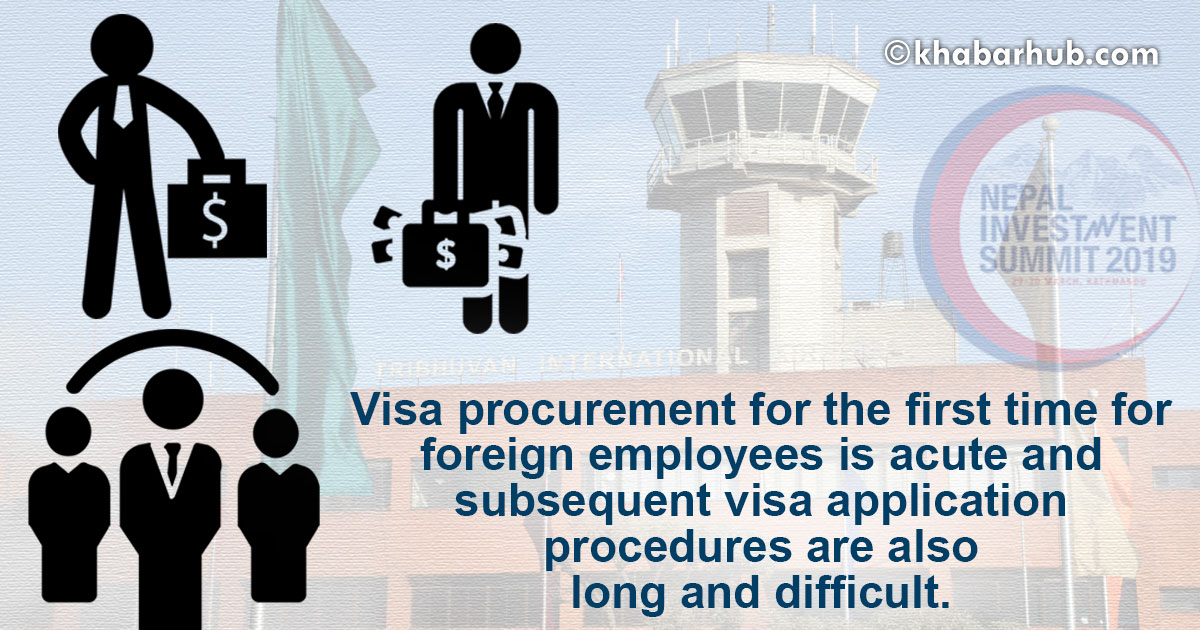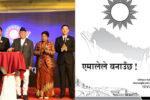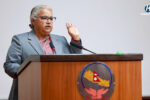KATHMANDU: While the nation is observing a two-day Nepal Investment Summit 2019, a survey report finds that foreign investors find visa-related delays and quota system in hiring foreign workers as hurdles discouraging.
Visa procurement for the first time for foreign employees is acute and subsequent visa application procedures are also long and difficult, according to a report by the Institute for Strategic and Socio-economic Research (ISSR)
The report is based on a rapid survey. Titled as ‘A quick diagnostic survey on visa-related issued faced by foreign investors in Nepal’, the survey was supported by ILO and DFID.
Total 22 business firms under foreign investment had participated in the survey. Prior to the survey, ISSR had held a consultation with foreign investors in Nepal, business community leaders, and representatives from government agencies.
All of the firms surveyed responded that they had experienced difficulties in terms of visa processing for their employees. However, it should be noted that firms under Indian investment do not face this problem since Indian nationals do not require a visa to enter Nepal.
According to the report, visa applications are mostly handled by employees’ lawyers (40%), firm’s lawyers (35%) and employees themselves (25%).
However, irrespective of who applies for the visa, the minimum time for obtaining a visa is six weeks whereas the maximum time as stated in the report is 32 weeks. Similarly, visa renewal takes from six to twenty weeks, according to the report.
The firms have identified visa-related delays and quota system in hiring foreign workers as some of the major hurdles in their business expansion.
Almost all the participating firms in the survey complained that the visa application procedure involved many paper works requiring an applicant to put as many as 32 to 38 signatures.
Other hurdles associated with visa procedure include variation in the interpretation of the acts, rules, and regulations across staffs and departments, unclear policies and lack of a timeline in processing an application.
Such complications in procedure and regulation have adversely affected in hiring skilled employees by 100 percent thereby affecting the quality and quantity of productions of the firms, according to the report.
According to the firms, the government could ease their visa related hurdles through shorter visa processing days and by initiating an online visa process system. Similarly, academic qualification should not be a bar in hiring workers, as mentioned in the report.
Likewise, the report suggests that the quota system in hiring foreign workers should be relaxed in order to FDI.
Investment, work permit and visa provisions in some south Asian and ASEAN countries:
Bangladesh
Work permit is mandatory for every foreign national seeking employment in Bangladesh. For private sector industrial enterprise, outside of Export Processing Zone (EPZ), Bangladesh Investment Development Authority (BIDA) issues the work permit whereas for the employment of foreign national in the EPZ, Bangladesh Export Processing Zones Authority (BEPZA) issues the work permit.
Cambodia
The employer should submit a work permit application to the Ministry of Interior (MoI) for review and approval. An application may also be submitted to any police station of a province or municipality and when submitted, the police through the governor forwards application to the MoI for review and approval. Two types of work permit (temporary and permanent) are available in Cambodia. To get a temporary work permit which is valid for up to one year, an application along with passport with valid visa, photographs, health certificate issued by a physician of the immigrant country, written work contract, insurance policy, and payment slip should be submitted. The temporary work permit is made available to skilled workers, staff and management specialists, technical staff; and service providers. The temporary work permit is issued by the MoI.
Vietnam
Foreign employees working in Vietnam shall comply with the labor law of Vietnam, as well as international conventions and treaties, to which Vietnam is a signatory. Foreign workers in Vietnam shall be protected by Vietnamese law.
Investors can employ foreign citizens only in the positions of managers, executive directors, specialists and technical workers, in which Vietnamese workers cannot meet the demands of production and trade. Foreign investors, before employing foreign citizens to work in Vietnam, are required to provide an explanation of their demand to employ foreign workers and obtain a written approval from the competent state authority.
A foreign employee shall have to present his/her work permit when undertaking immigration procedures and when required by a competent state authority.
Lao PDR
According to the Labor law of Lao PDR, employer has to create a staffing plan within a labor unit giving a priority to Lao labor. However, if the demand for labor cannot be supplied by Lao nationals, the employer has the right to request the use of foreign labor. The ratio of acceptance of foreign labor within a labor unit must be fifteen percent of the total number of Lao laborers within a labor unit for technical experts undertaking physical labor; and twenty-five percent of the total number of Lao laborers within a labor unit for technical experts undertaking mental labor.
For large projects and priority projects of the government spanning five years or under, the use of foreign labor is accorded by the contract between the project owner and the government.
Myanmar
Foreign employees of enterprises covered by the Foreign Investment Law must apply to the Ministry of Labor, Immigration, and Population (MOLIP) with a recommendation of the Myanmar Investment Commission (MIC) for work permits and apply to the MIC for local residence permits in Myanmar. Permits for foreign workers working in SEZs are governed under the SEZ Law.
Sri Lanka
Investors and expatriates need to apply for entry visa; which expires after one month of arrival to Immigration Department. Investor and shareholder have to apply for the residence visa which has the validity of one year and is subject to extension. Extension of residence visa for sec. 16 project is of one year while that of sec. 17 project is of two year. The expatriate’s temporary visa is available for 3 months.









Comment